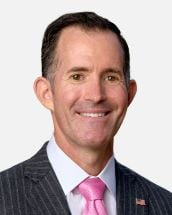In brief
The North America Trade Secrets Practice discusses a novel argument asserted by two defendants in an ongoing trade secret misappropriation case filed by Cisco in California federal court that has the potential to impact almost every company’s Confidential Information and Invention Assignment Agreements, both in California and beyond.
Bradford Newman, Anne Kelts Assayag, Colton Long discuss the former employees assertion that by classifying their ‘know-how,’ ‘ideas,’ and any information concerning Cisco’s ‘actual or anticipated business’ as ‘proprietary,’ Cisco is attempting to achieve by contract what the law specifically disallows. “Cisco cannot claim ‘ownership’ over [their] know-how and ideas and then assert that alleged ownership to prevent [these employees] from working” for a competitor.
So is this argument too esoteric to be of concern, or something that companies need to understand and address? Is this attack on standard Confidential Information Agreement provisions limited only to California, or does it have the potential to spread to other jurisdiction? Our North America Trade Secrets Practice members provides insight on these and related issues.
Click here to access Focus on Trade Secrets.




